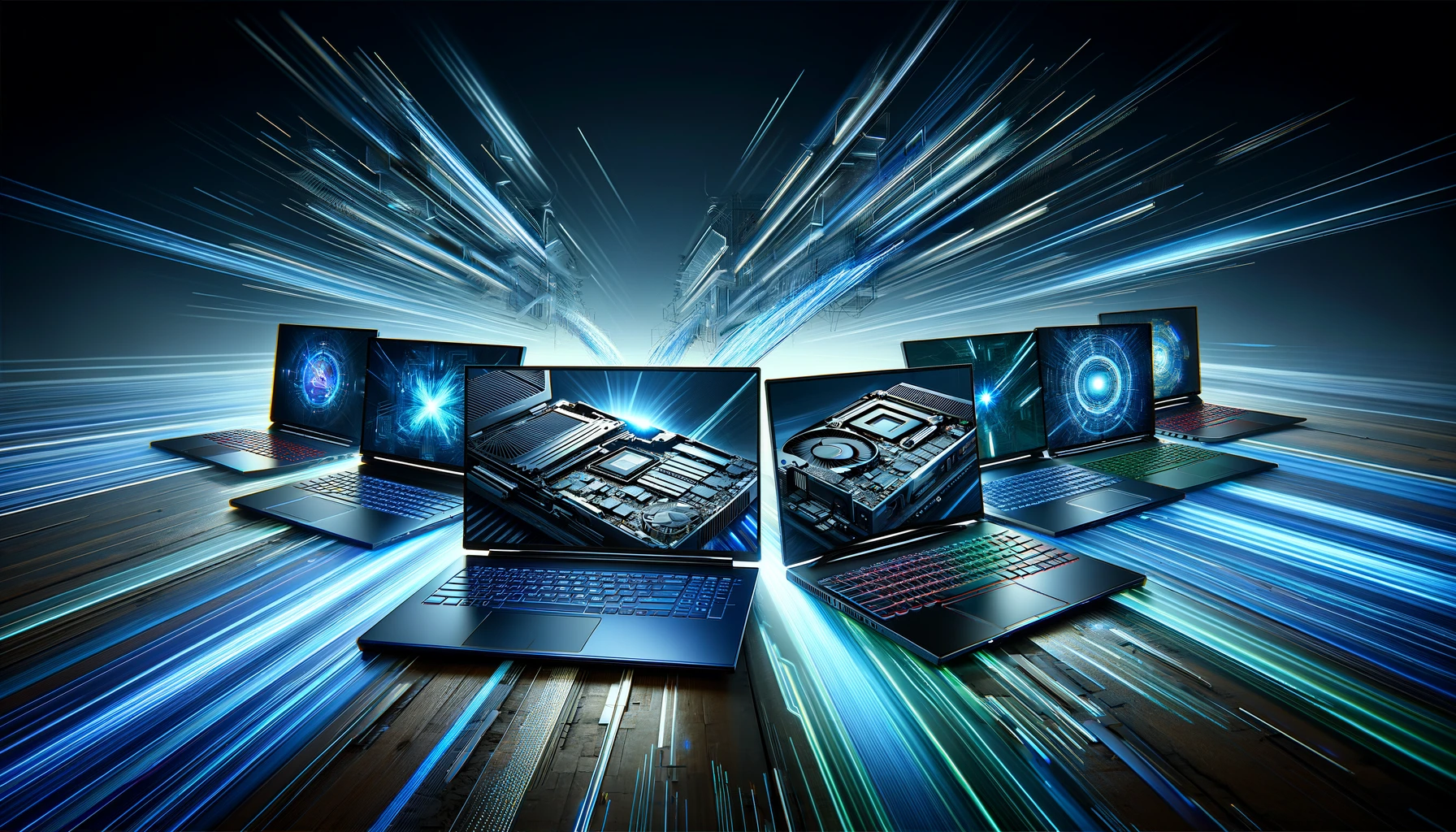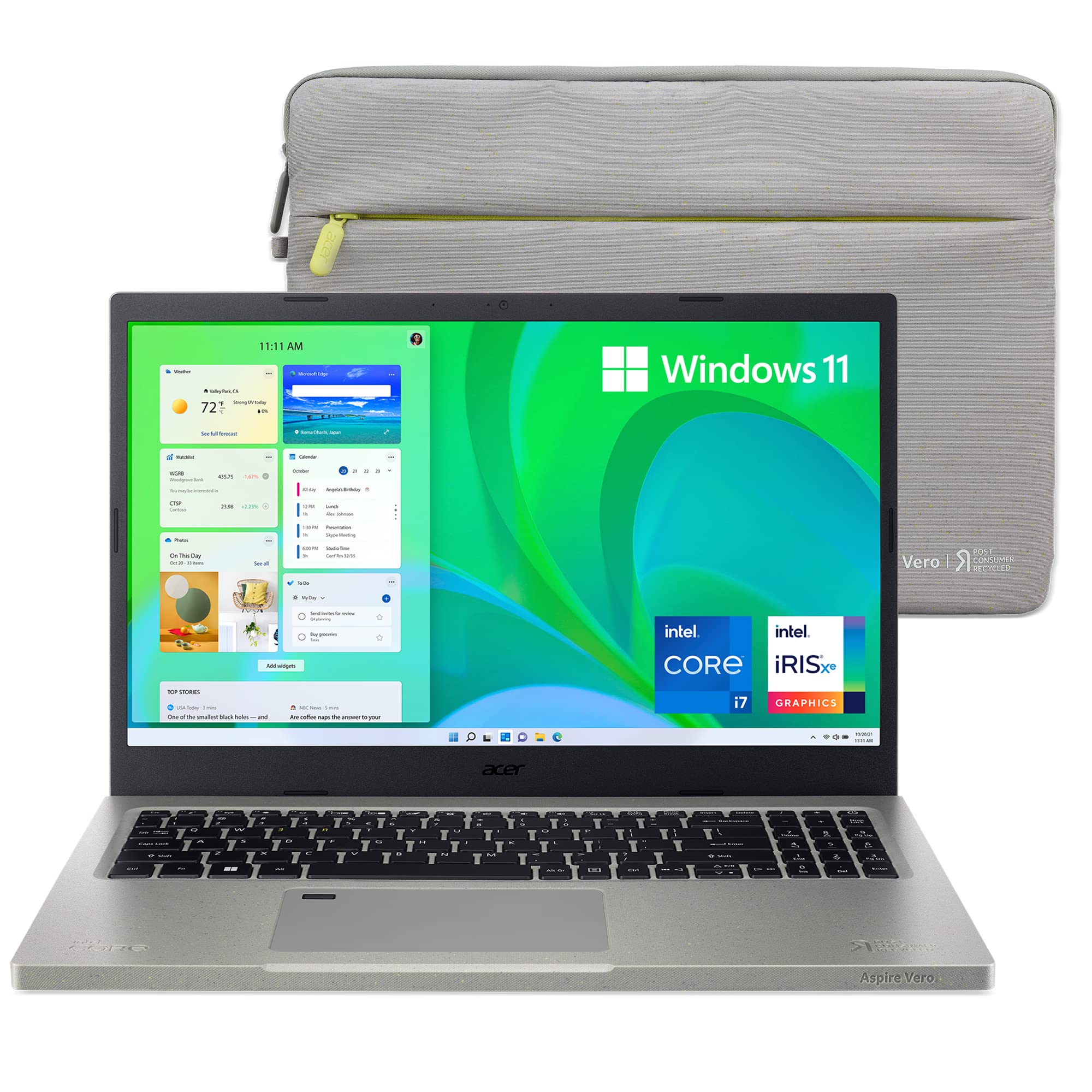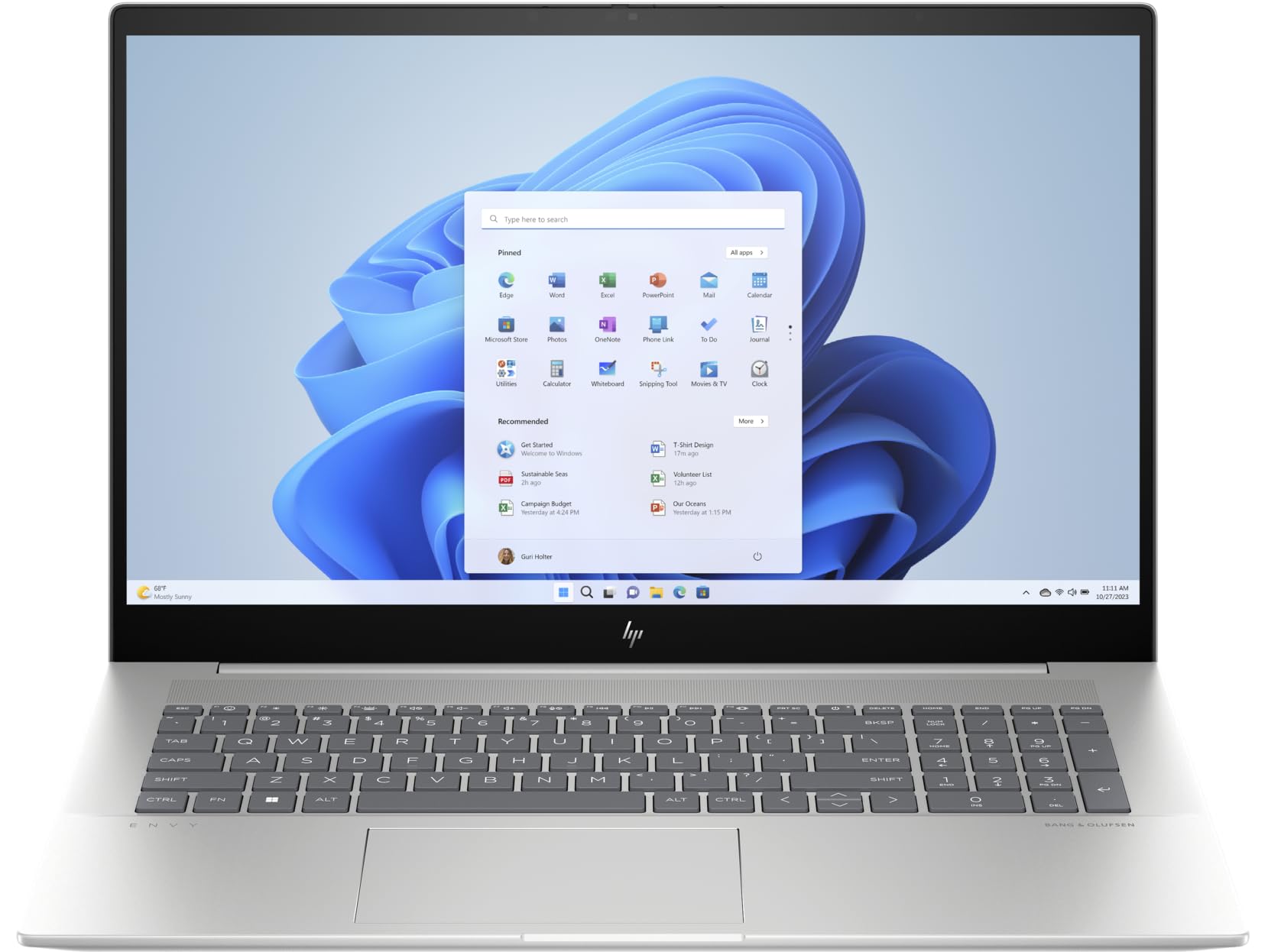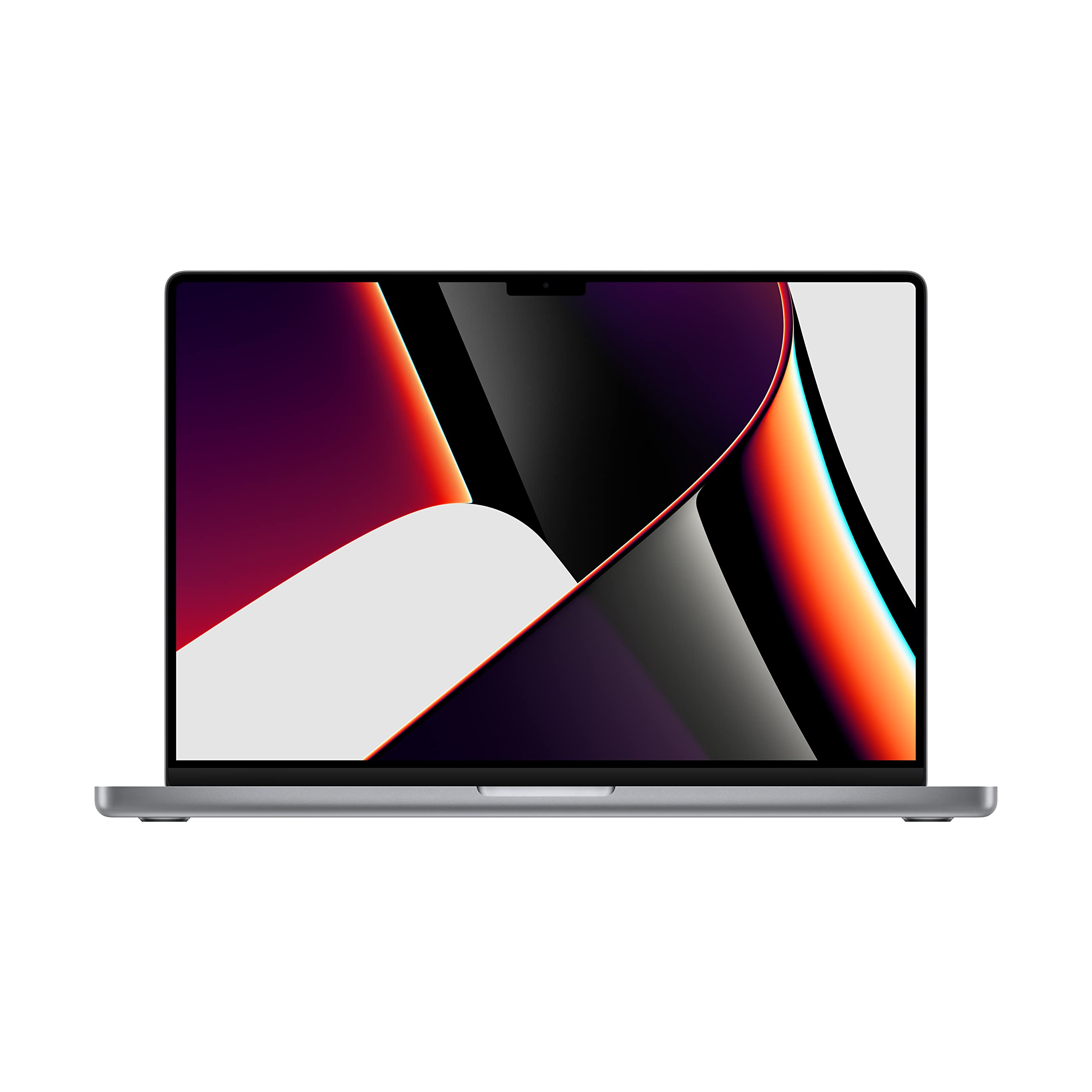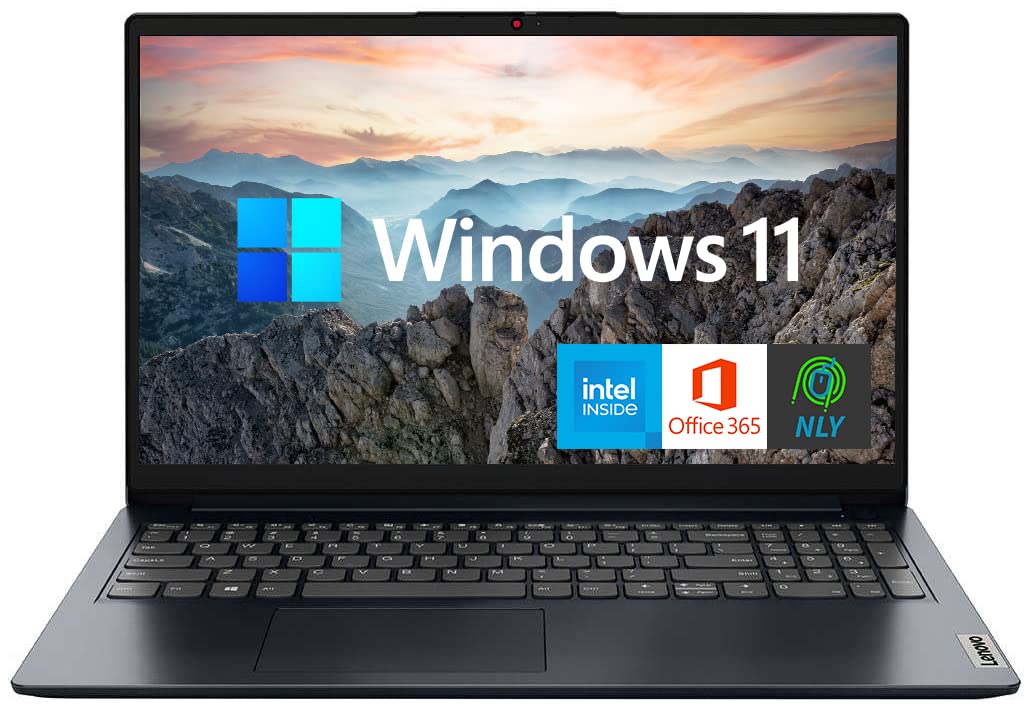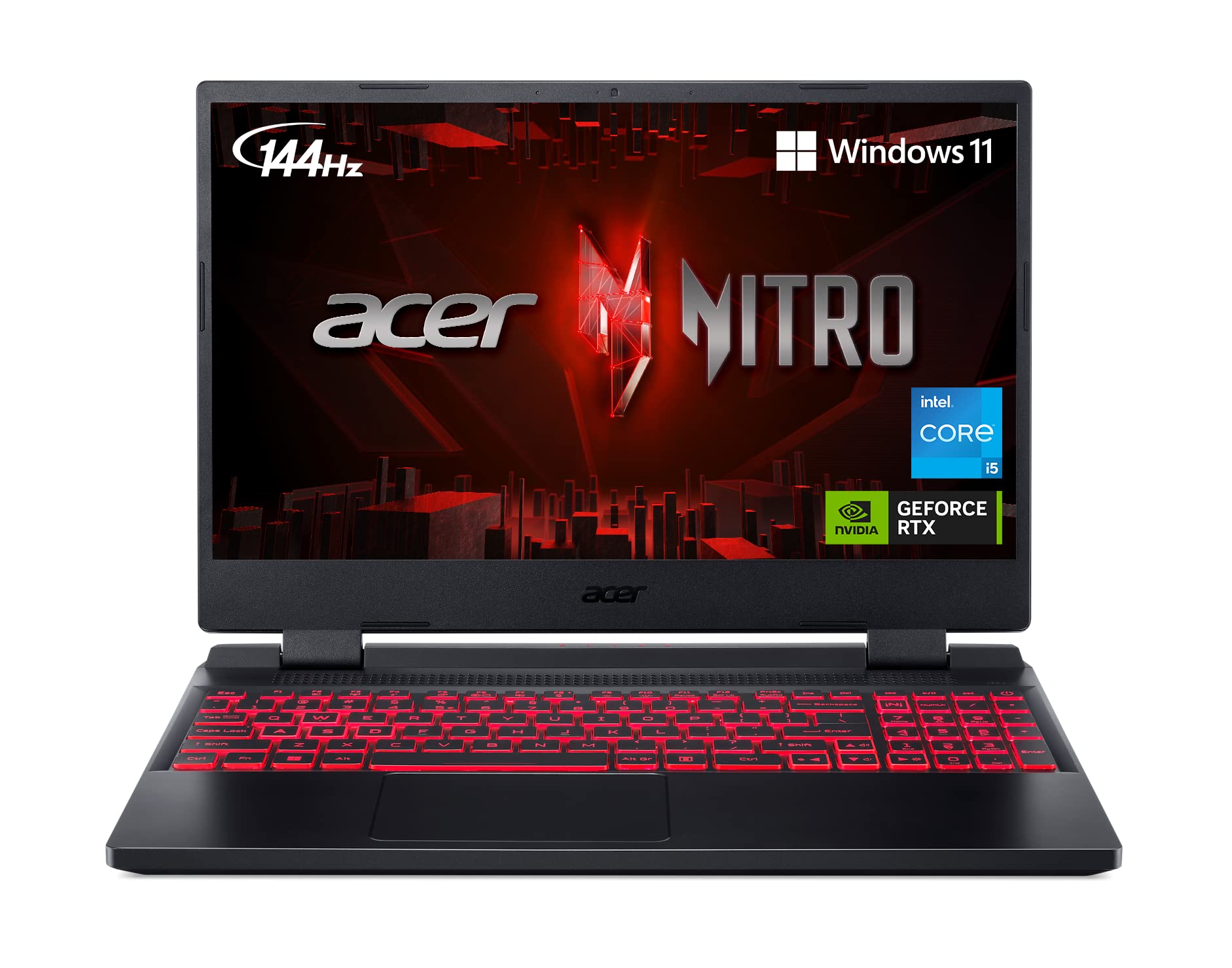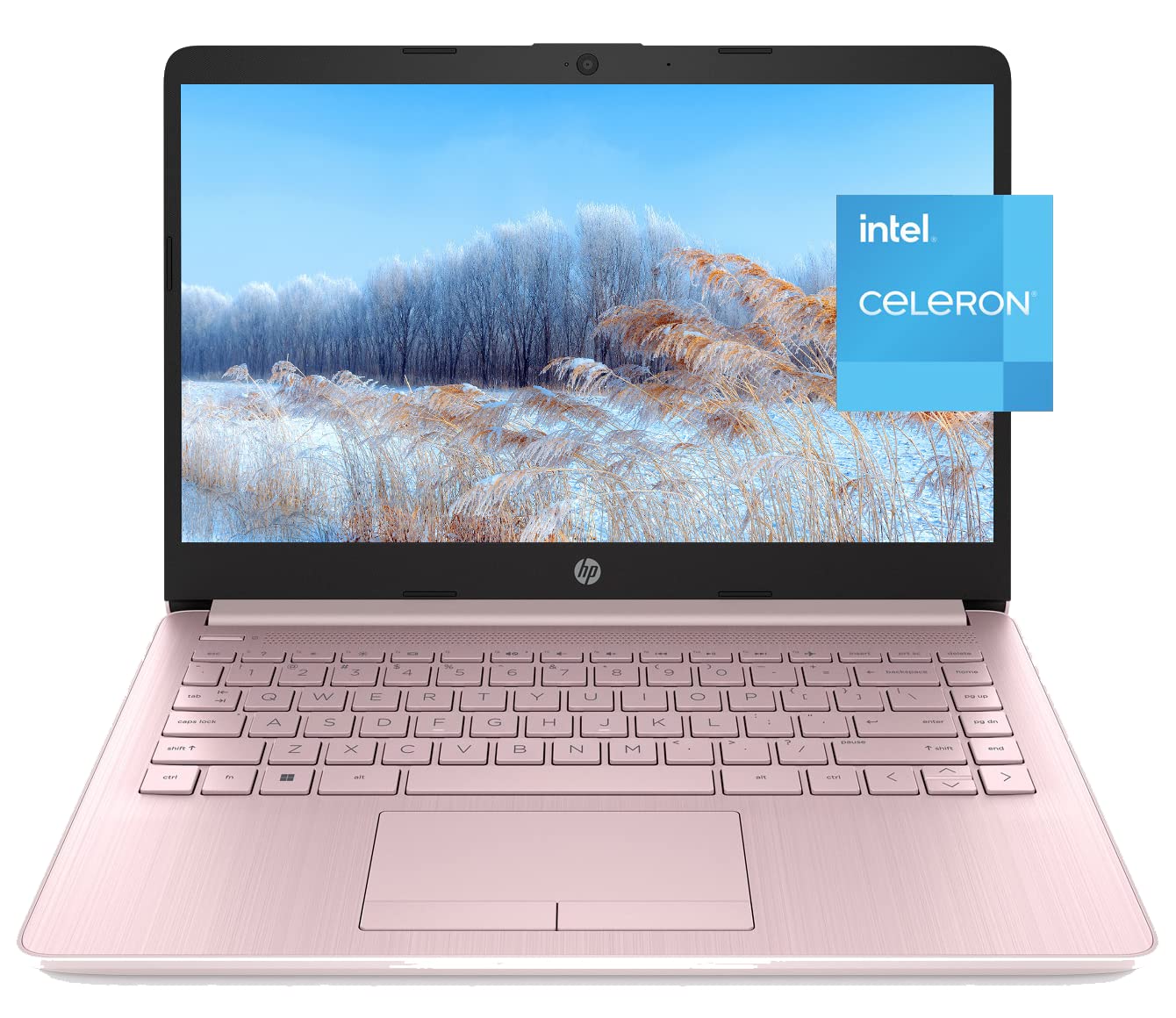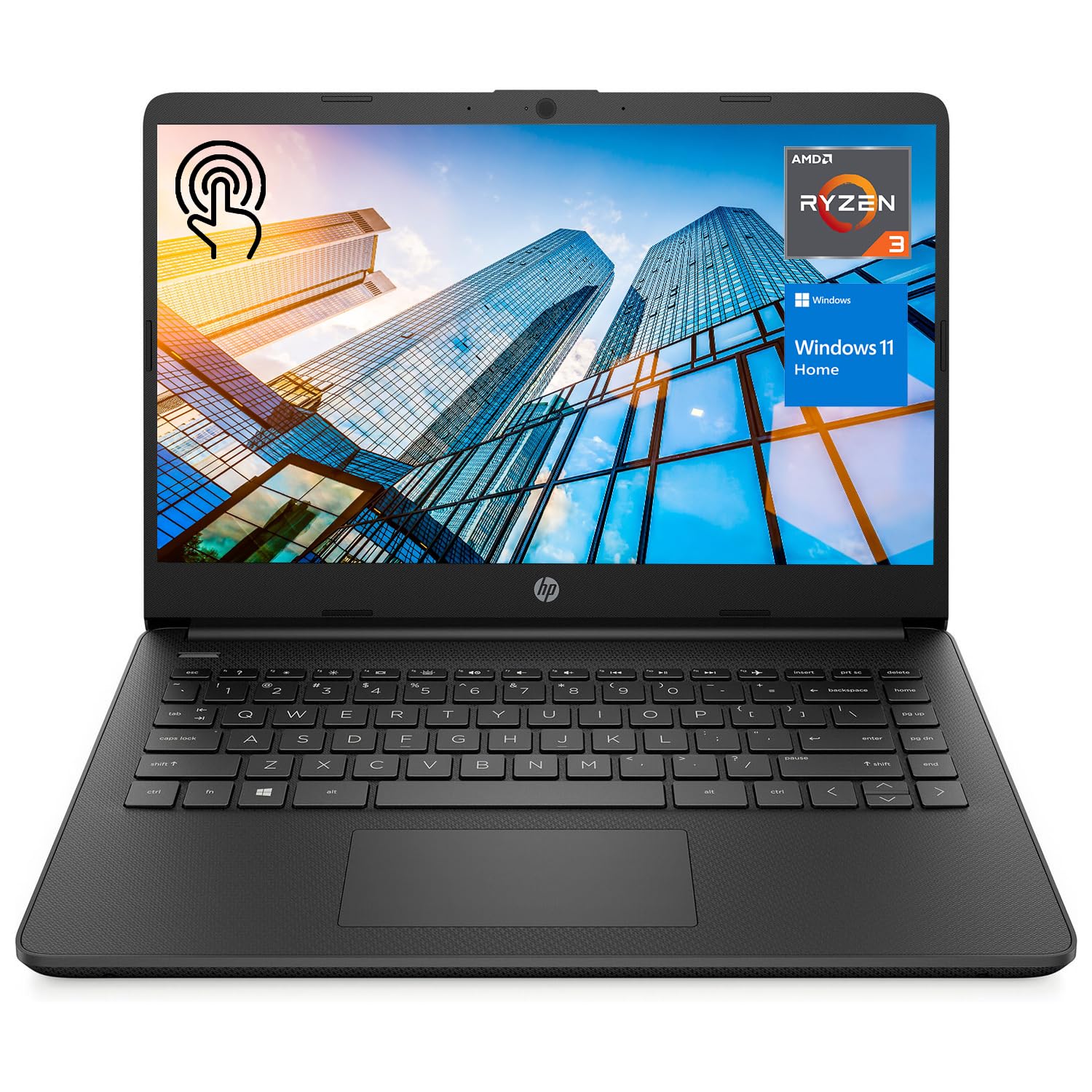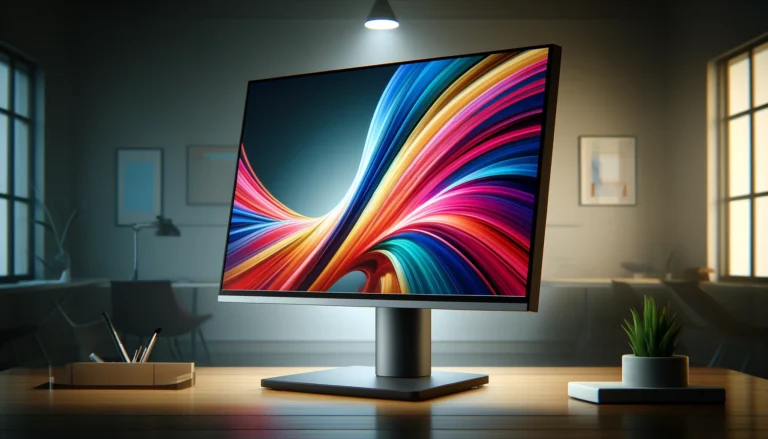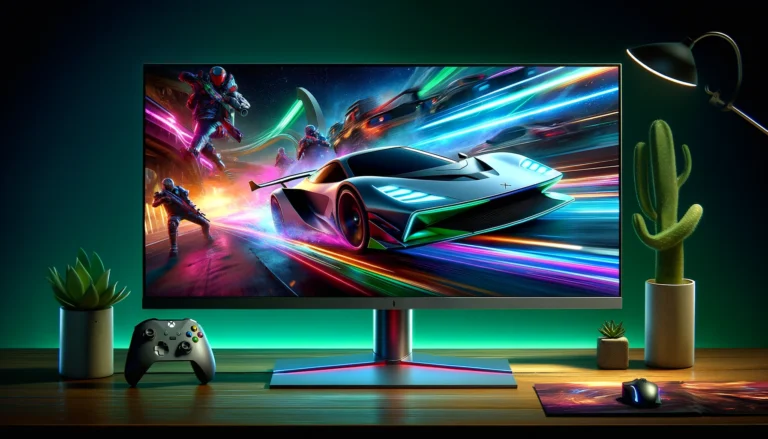Best Engineering Laptops for 2024
Engineering is a field of study that requires powerful tools to support complex tasks. One of the most important tools for any engineer is a laptop that can handle the demands of sophisticated software and applications. A good engineering laptop should be able to run advanced programs such as CAD, CAM, and simulation software without lagging or crashing. It should also have a long battery life and be portable enough to take to different locations.
When choosing the best engineering laptop, there are several factors to consider. One of the most critical things to look for is the processing power. A laptop with a powerful processor will be able to handle complex calculations and simulations with ease. Another essential factor to consider is the graphics card. A good graphics card is necessary for running 3D modeling software and other graphic-intensive applications.
Other important features to consider when choosing the best engineering laptop include the amount of RAM, storage capacity, and display quality. A laptop with plenty of RAM will be able to run multiple programs simultaneously without slowing down. A large storage capacity is also essential for storing large files and projects.
We spent countless hours researching and testing various engineering laptops to identify the ones that offer the best performance, portability, and value for money. In the following sections, we will discuss our top picks for the best engineering laptops on the market.
Best Engineering Laptops
We know that finding the perfect laptop for engineering can be a daunting task. With so many options available, it can be difficult to determine which one will meet your specific needs. That’s why we’ve put together a list of the best engineering laptops on the market. Our team of experts has thoroughly researched and tested each laptop to ensure that they meet the demands of engineering software and design. Whether you’re an engineering student or a professional engineer, you can trust that these laptops will provide the power and performance you need to get the job done.
1) Acer Aspire Vero AV15-51-7617 Green PC
If you’re looking for a laptop that is not only high-performing but also eco-friendly, then the Acer Aspire Vero AV15-51-7617 Green PC is definitely worth considering.
PROS
CONS
We were impressed with the Acer Aspire Vero AV15-51-7617 Green PC. The laptop is not only powerful but also environmentally friendly, made with PCR materials and EPEAT Silver Certified. We appreciated the laptop’s fast performance, sharp display, and added security features. However, the battery life could be longer, and the laptop is a bit heavy. Overall, we recommend this laptop for those who are looking for a high-performing, eco-friendly option.
2) Lenovo IdeaPad 1
If you’re looking for an affordable laptop that can handle basic engineering tasks, the Lenovo IdeaPad 1 is a solid choice.
PROS
CONS
We found the Lenovo IdeaPad 1 to be a solid choice for basic engineering tasks. The laptop is fast, easy to use, and provides a clear picture on the anti-glare display. However, the lower resolution and limited app options might be an issue for some users. If you’re looking for an affordable laptop that can handle basic engineering tasks, the Lenovo IdeaPad 1 is definitely worth considering.
3) HP Envy 17T Laptop
If you’re looking for a powerful and stylish laptop that can handle your engineering needs, the HP Envy 17T is a great option to consider.
PROS
CONS
We were impressed with the HP Envy 17T’s performance and aesthetics. The laptop is a true powerhouse, perfect for demanding engineering tasks, and the sleek aluminum build makes it a stylish accessory. The 17.3″ diagonal FHD WLED Touchscreen display is crystal clear and the Bang & Olufsen dual speakers provide an immersive audio experience. However, the laptop’s weight may be a concern for those who frequently travel with their devices. Overall, the HP Envy 17T is a great investment for those seeking a reliable and powerful engineering laptop.
4) Apple 2021 MacBook Pro (16-inch, M1 Max chip with 10‑core CPU and 32‑core GPU, 32GB RAM, 1TB SSD)
If you’re looking for a high-performing laptop for engineering work, the Apple 2021 MacBook Pro is definitely worth considering.
PROS
CONS
We’ve had the opportunity to use the Apple 2021 MacBook Pro for engineering work, and we have to say, it’s a powerhouse. The M1 Pro or M1 Max chip provides lightning-fast performance, allowing us to run even the most demanding engineering software with ease. The 16-inch Liquid Retina XDR display is a pleasure to work on, providing crystal-clear images and accurate colors.
The battery life is another standout feature, lasting up to 21 hours, which is more than enough for a full day’s work. However, the price may be a drawback for some users, as it is quite steep. Additionally, the lack of an offboard 3D video card may be a dealbreaker for some engineering professionals who require this feature. Finally, the laptop only has USB-C ports, which may require additional adapters for some users.
Overall, if you’re looking for a top-of-the-line laptop for engineering work and have the budget for it, the Apple 2021 MacBook Pro is definitely worth considering.
5) Lenovo 15.6″ IdeaPad Laptop
If you’re looking for a laptop that can handle your engineering needs, the Lenovo 15.6″ IdeaPad Laptop is definitely worth considering.
PROS
CONS
Overall, the Lenovo 15.6″ IdeaPad Laptop is a solid choice for anyone looking for a reliable and efficient laptop for engineering work. With its powerful processor, ample RAM and storage, and high-quality display, it can handle even the most demanding tasks with ease. However, if you need a laptop with a dedicated graphics card or prefer to use a different operating system, you may want to look elsewhere.
6) HP 14 Laptop
If you are looking for an affordable laptop that can handle basic engineering tasks, the HP 14 Laptop is a decent option to consider.
PROS
CONS
In our experience, the HP 14 Laptop is a good choice for students and engineers on a tight budget who need a laptop for basic tasks such as web browsing, word processing, and light engineering work. The laptop is lightweight and easy to carry around, making it a great option for those who need to work on the go.
The 16GB RAM and 192GB storage capacity are more than enough for basic engineering tasks, and the battery life is impressive, lasting up to 11.5 hours. However, the Intel Celeron N4120 processor is not the most powerful, and may struggle with more demanding engineering software. Additionally, the display resolution is only 1366 x 768, which may not be ideal for detailed engineering work.
Overall, the HP 14 Laptop is a decent option to consider if you are on a tight budget and need a laptop for basic engineering tasks. However, if you are looking for a more powerful laptop that can handle more demanding engineering software, you may want to consider other options.
7) Acer Nitro 5 AN515-58-525P Gaming Laptop
If you’re looking for a powerful gaming laptop that can handle demanding engineering applications, the Acer Nitro 5 AN515-58-525P is a great option.
PROS
CONS
Overall, we highly recommend the Acer Nitro 5 AN515-58-525P for its powerful performance and stunning visuals. The 12th Gen Intel Core i5 processor and NVIDIA GeForce RTX 3050 graphics card make it an excellent choice for gaming and demanding engineering applications. However, the laptop may get warm during extended use, and the battery life may drain quickly during intensive applications.
8) HP Newest Stream 14″ HD Laptop
If you’re looking for a budget-friendly laptop for engineering tasks, the HP Newest Stream 14″ HD Laptop is worth considering.
PROS
CONS
In our experience, the HP Newest Stream 14″ HD Laptop is a decent option for basic engineering tasks such as drafting, modeling, and light simulation. The laptop’s upgraded RAM and anti-glare display make it a comfortable and efficient device for multitasking. However, the laptop’s limited storage capacity and less powerful processor may not be suitable for more demanding engineering applications.
The laptop runs on Windows 11 in S mode, which can be switched to Windows 10 Home or Pro using the instructions provided by HP. The laptop comes with a 1-year subscription to Microsoft Office 365, which is a great value-add for students and professionals.
In terms of connectivity, the laptop features a USB Type-C port, two USB Type-A ports, an HDMI port, an RJ-45 port, and a headphone/microphone combo jack. The laptop also has a built-in webcam with an integrated microphone, making it a suitable device for online meetings and presentations.
Overall, if you’re on a tight budget and need a laptop for basic engineering tasks, the HP Newest Stream 14″ HD Laptop is worth considering. However, if you need a more powerful device for demanding engineering applications, you may want to look at other options.
9) HP Essential Laptop
If you’re looking for a budget-friendly laptop that can handle engineering tasks, the HP Essential Laptop is a solid choice.
PROS
CONS
We were impressed with the HP Essential Laptop’s performance for the price. The laptop is snappy and responsive, and the touchscreen is a nice bonus. However, the display resolution and lack of a backlit keyboard may be dealbreakers for some users.
If you’re on a budget and need a laptop that can handle engineering tasks, the HP Essential Laptop is definitely worth considering. Just be aware of its limitations before making a purchase.
10) Dell Inspiron 14 Laptop
If you’re looking for a laptop that can handle engineering tasks with ease, the Dell Inspiron 14 is a solid choice.
PROS
CONS
We recently got our hands on the Dell Inspiron 14 laptop and were impressed with its performance. The AMD Ryzen 7 processor delivers speedy and reliable performance, making it a great option for engineering tasks. We were also pleased with the 14-inch display, which has a 16:10 aspect ratio and ComfortView software to reduce harmful blue light emissions. The laptop also has a variety of ports, including Type-C, which is convenient if you need to connect to multiple devices.
However, we did notice a few downsides to the laptop. The battery life could be better – you’ll likely need to keep the charger handy if you plan on using it for an extended period of time. The laptop is also a bit heavy, so it may not be the best option if you need to carry it around frequently. Finally, while the keyboard is decent, it could be more comfortable for long typing sessions.
Overall, we think the Dell Inspiron 14 is a solid option for anyone in need of a laptop that can handle engineering tasks with ease.
Buying Guide
When it comes to choosing the best engineering laptop, there are several factors to consider. In this guide, we will discuss the key features that you should look for when making your decision.
Performance
One of the most important factors to consider is performance. Engineering software can be demanding, so you need a laptop that can handle the workload. Look for a laptop with a powerful processor, such as an Intel Core i7 or i9, and at least 8GB of RAM. A dedicated graphics card is also important for running 3D modeling and simulation software.
Display
The display is another important feature to consider. You want a laptop with a high-resolution display that can accurately display engineering drawings and schematics. Look for a laptop with at least a 1080p resolution, and consider a 4K display if you need even more detail. A larger display can also be helpful, but keep in mind that it will make the laptop heavier and less portable.
Portability
Portability is another important factor to consider, especially if you need to take your laptop with you to meetings or job sites. Look for a laptop that is lightweight and easy to carry, with a long battery life. A laptop with a durable, rugged design can also be helpful if you will be using it in harsh conditions.
Connectivity
Finally, consider the connectivity options that are important to you. Look for a laptop with plenty of USB ports, including at least one USB-C port for charging and data transfer. Ethernet and HDMI ports can also be helpful for connecting to external displays and networks.
By considering these factors, you can choose the best engineering laptop for your needs. Keep in mind that there is no one-size-fits-all solution, so be sure to choose a laptop that meets your specific requirements.
Frequently Asked Questions
What specifications should I look for in a laptop as a computer engineering student?
As a computer engineering student, you should look for a laptop with a powerful processor, at least 8GB of RAM, and a dedicated graphics card. A solid-state drive (SSD) is also recommended for faster boot and load times. These specifications will ensure that your laptop can handle programming, data analysis, and other demanding tasks.
Which laptops are recommended for mechanical engineering students with demanding software requirements?
Mechanical engineering students require laptops with powerful processors, dedicated graphics cards, and at least 16GB of RAM. Some recommended laptops for mechanical engineering students include the Dell XPS 15, Lenovo ThinkPad P52, and HP ZBook Studio G5.
How do I choose a laptop suitable for electronic engineering coursework and projects?
For electronic engineering coursework and projects, you should look for a laptop with a powerful processor, at least 8GB of RAM, and a dedicated graphics card. Additionally, you should consider a laptop with a high-resolution display and good battery life. Some recommended laptops for electronic engineering students include the Dell XPS 13, Lenovo ThinkPad X1 Carbon, and HP Spectre x360.
What are the most cost-effective laptops for engineering students on a tight budget?
If you’re on a tight budget, you can still find laptops that meet the minimum requirements for engineering coursework. Some cost-effective options include the Acer Aspire E 15, ASUS VivoBook F510UA, and HP Pavilion 15. These laptops offer a good balance of performance and affordability.
Can you suggest laptops that meet the general requirements for engineering programs under $1,000?
Yes, some laptops that meet the general requirements for engineering programs under $1,000 include the Acer Aspire 5, Lenovo Ideapad 330, and Dell Inspiron 15 5000. These laptops offer a good balance of performance and affordability for students on a budget.
What are the top-rated laptops for STEM students according to expert reviews?
According to expert reviews, some of the top-rated laptops for STEM students include the Lenovo ThinkPad X1 Carbon, Dell XPS 13, and HP Spectre x360. These laptops offer a combination of performance, portability, and durability that make them ideal for STEM students.

